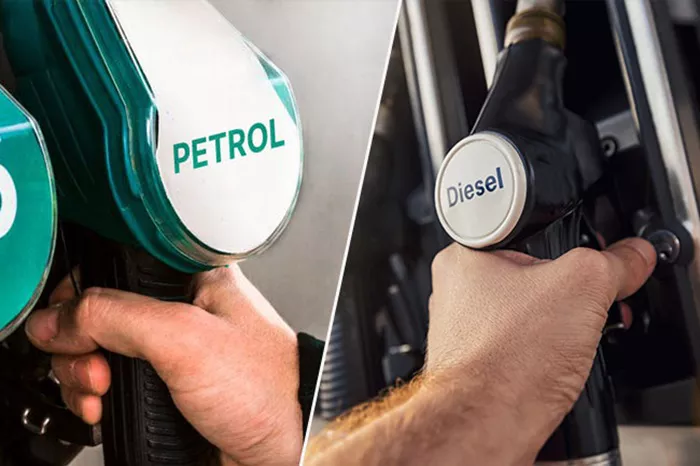In the realm of automotive fuels, the debate between diesel and gasoline has long been a topic of discussion, not only in terms of efficiency and performance but also safety. Understanding the nuances of their composition, flammability, explosiveness, storage and transportation safety, and environmental impact is crucial for making informed decisions regarding their use. This article aims to delve into these aspects to determine which fuel—diesel or gasoline—is safer.
Fuel Composition
Diesel and gasoline, while both derived from crude oil, possess distinct chemical compositions that influence their properties and behavior. Gasoline, primarily composed of hydrocarbons, typically contains between 4 and 12 carbon atoms per molecule, with branched or cyclic structures predominating. Its chemical formula can vary, but a common representation is C8H18 for octane, a major component of gasoline.
Conversely, diesel comprises heavier hydrocarbons with longer carbon chains, containing between 10 and 25 carbon atoms per molecule. The chemical structure of diesel molecules lacks the branched or cyclic arrangements found in gasoline, leading to a higher boiling point and greater density.
Flammability
Flammability, a critical aspect of fuel safety, refers to the ease with which a substance ignites and sustains combustion. In this regard, gasoline is significantly more flammable than diesel. Gasoline vaporizes readily at room temperature and forms highly combustible mixtures with air within its flammability limits. Even a small spark or heat source can trigger ignition, leading to rapid combustion and the potential for explosive fire.
Diesel, on the other hand, has a higher flash point—the temperature at which it produces enough vapor to ignite—making it less prone to spontaneous combustion. While diesel can ignite under certain conditions, such as in the presence of an open flame or extreme heat, its lower volatility reduces the risk of accidental fires compared to gasoline.
Explosiveness
Explosiveness pertains to the force and violence of a substance’s combustion when subjected to rapid oxidation. Gasoline, due to its high volatility and vapor pressure, has a greater potential for explosive combustion compared to diesel. In an enclosed space with a sufficient fuel-air mixture, gasoline vapor can detonate explosively, posing a significant hazard to life and property.
Diesel, although less volatile, can still explode under specific circumstances, particularly in confined environments with adequate oxygen supply. However, diesel explosions tend to be less forceful and violent than gasoline explosions due to its slower rate of vaporization and lower flammability.
See also: What To Do If Gasoline Spills On You?
Storage and Transportation
The safety of storing and transporting fuels is paramount to prevent leaks, spills, and accidents that could endanger lives and the environment. Gasoline, with its higher volatility and propensity to vaporize, poses greater challenges in storage and transportation compared to diesel. Specialized containers and tanks equipped with vapor recovery systems are necessary to mitigate the risk of vapor emissions and explosions.
Diesel, with its lower volatility and reduced flammability, is comparatively easier to store and transport safely. Standard storage tanks and containers, constructed from materials resistant to corrosion and leakage, are sufficient for diesel storage. Moreover, diesel’s lower risk of vaporization minimizes the need for elaborate vapor control measures during transportation, simplifying logistics and reducing operational costs.
Environmental Impact
The environmental impact of fuels encompasses various factors, including emissions of greenhouse gases, air pollutants, and contributions to climate change and pollution. Gasoline combustion releases carbon dioxide (CO2), nitrogen oxides (NOx), volatile organic compounds (VOCs), and particulate matter (PM), contributing to smog formation, respiratory ailments, and global warming.
Diesel combustion also emits CO2, NOx, and PM, albeit in different proportions and chemical forms compared to gasoline. While diesel engines are more fuel-efficient than gasoline engines, they tend to produce higher levels of NOx and PM emissions, contributing to air quality degradation and health hazards. However, advancements in diesel engine technology, such as particulate filters and selective catalytic reduction systems, have helped mitigate these environmental impacts to some extent.
In terms of overall environmental impact, neither diesel nor gasoline can be considered entirely environmentally friendly. Both fuels have adverse effects on air quality, human health, and ecosystems, underscoring the importance of transitioning to cleaner and renewable energy sources.
Conclusion
In the debate between diesel and gasoline, safety considerations encompass a spectrum of factors, including flammability, explosiveness, storage and transportation, and environmental impact. While gasoline is more flammable and explosive than diesel, the latter poses challenges in emissions control and air quality management.
Ultimately, the choice between diesel and gasoline hinges on various factors, including application, regulatory requirements, and technological advancements. As the automotive industry continues to evolve, innovations in fuel composition, engine design, and alternative energy sources offer promising solutions to enhance safety, efficiency, and environmental sustainability.
Related topics:
Gasoline Engine Vs Diesel Engine: What Is The Difference?

